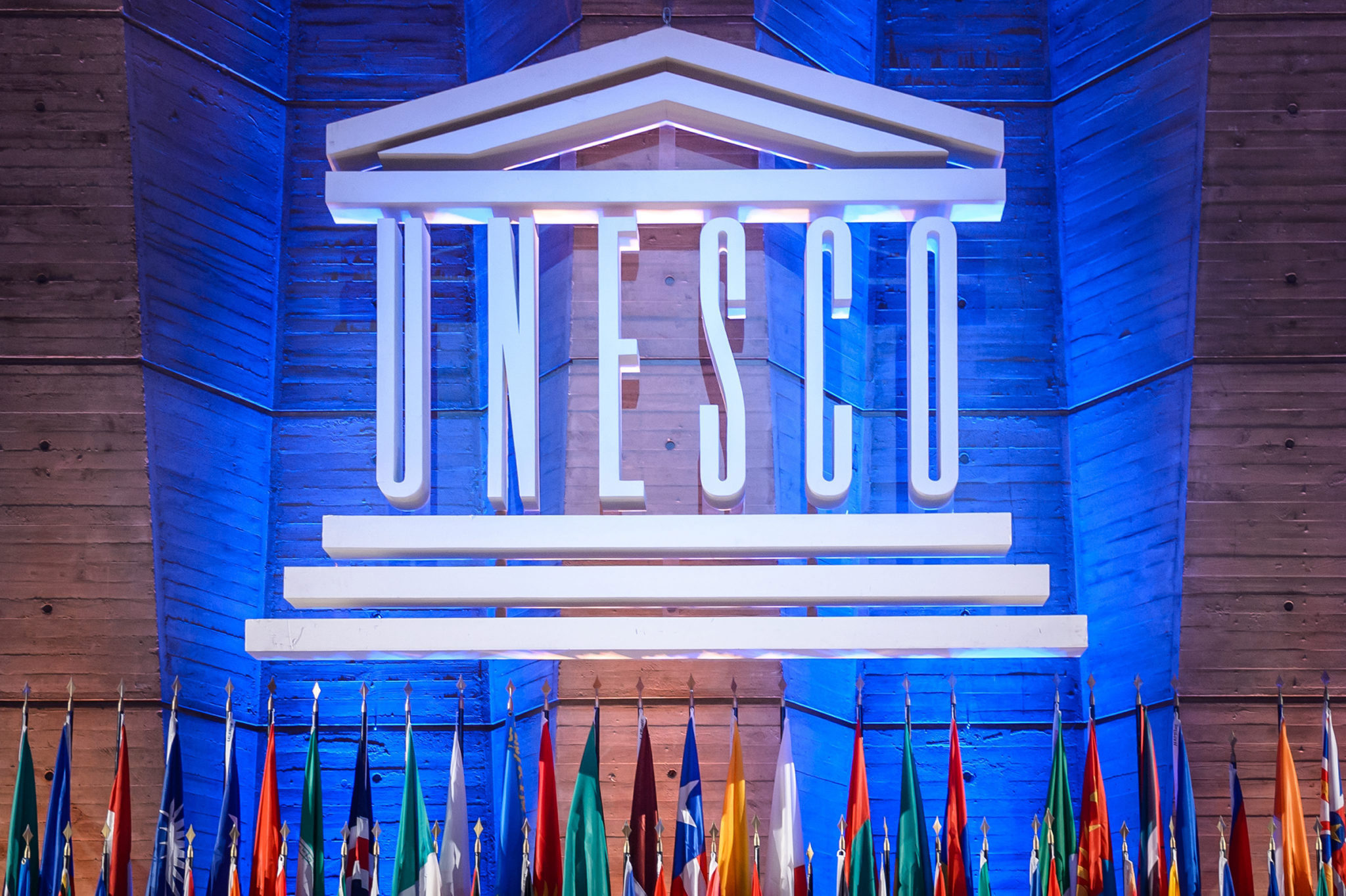This weekend, on 24 June, the United Nations Educational, Scientific, and Cultural Organization (UNESCO) will begin their 42nd session of the World Heritage Committee in Manama, Bahrain. The session, which concludes on 4 July, is held yearly to discuss the management of existing World Heritage Sites and accept new nominations by countries. American’s for Democracy & Human Rights in Bahrain (ADHRB) is deeply disappointed by UNESCO’s decision to host this year’s conference in Bahrain, a country with an appalling human rights record – particularly in respect to cultural rights.
UNESCO’s vision includes “promoting cultural heritage and the equal dignity of all cultures”, and the organization claims to stand up for “freedom of expression, as a fundamental right and a key condition for democracy and development”. The Kingdom of Bahrain, on the other hand, has a history of destroying sites of cultural significance and violently suppressing free expression. On 14 February 2011, thousands of Bahraini citizens joined together to peacefully call for democratic reforms and human rights protections. Two days later, on 16 February, the protesters occupied the Pearl Roundabout, a traffic circle in Manama that took its name from the 300-ft high pearl monument at its center. Demonstrators established an encampment and stayed overnight, even organizing speeches and political discussions. However, at 3:00 AM on 17 February, Bahraini security forces violently raided the gathering, killing and wounding protesters. By 19 February, demonstrators returned to the site and reoccupied the Roundabout until 16 March, when the security forces again attacked. This time authorities barricaded the area, preventing protesters from returning. On 18 March, the Bahraini government demolished the Pearl Roundabout, which had by then become a symbol for democracy in Bahrain and a focal point of the movement. The government also later removed all imagery of the roundabout, including discontinuing the 500 fils coin – which had the Pearl Roundabout featured on the back side.
Additionally, in the aftermath of the 2011 uprising, Bahraini authorities damaged at least 53 Shia mosques and religious institutions, 28 of which were entirely destroyed. To this day, the government has only partially restored these places of worship, and in many parts of Bahrain, Shia communities continue to hold religious services in damaged mosques or makeshift structures, while other sites are arbitrarily cut off by police cordons.
Systematic discrimination against the majority Shia Muslim community remains widespread in Bahrain, and the country’s Baharna and Ajam ethnoreligious groups, in particular, face discrimination based on the intersection of faith and heritage. Both official and unofficial prejudice against these communities is longstanding in Bahrain, but in recent years – particularly since the emergence of the 2011 mass pro-democracy movement – the government has overseen an intensification of sectarian divides. The Bahraini government has increased its harassment and prosecution of prominent Shia religious figures, including leading cleric and opposition politician, Sheikh Ali Salman, who was originally arrested and sentenced to four years in prison in 2014 for political speeches. Likewise, the government arbitrarily revoked Bahraini citizenship from Sheikh Isa Qassim, the kingdom’s preeminent Shia spiritual leader, and confined him to his home under de facto house arrest. While Sheikh Qassim is one of the most well-known cases of denaturalization in the kingdom, the Bahraini government has punitively revoked the citizenship of over 700 other Bahrainis since 2012 – a majority of them Shia Muslim. Being both Shia and stateless, these individuals are even more likely to be denied access to social welfare or assistance programs available to other Bahraini citizens, or targeted for forced expulsion.
Bahrain’s defense sector is also marked by severe sectarian discrimination ranging from biased hiring practices to the dissemination of radical anti-Shia training materials. The various security services, which are some of the largest employers in Bahrain, largely refuse to hire Shia as a matter of informal policy, drawing disproportionately on local and foreign Sunni recruits. Therefore, the Shia community disproportionally faces extrajudicial violence and police harassment, including excessive force and torture. On 23 May 2017, a peaceful demonstration protesting the denaturalization of Sheikh Qassim in his hometown of Diraz was violently dispersed by security forces. Five demonstrators were killed, hundreds were injured and at least 286 individuals were arrested.
“As an organization that promotes the protection and preservation of cultural sites and heritage, it is greatly problematic that UNESCO has decided to host this year’s World Heritage Committee session in Bahrain,” says ADHRB Executive Director Husain Abdulla. “Bahrain has demonstrated a lack of respect for cultural rights and UNESCO should be critically engaging with Bahrain as a grievous violator of their primary mission. Not seeking sponsorship from the Bahraini government.”
ADHRB is deeply alarmed that UNESCO is choosing to partner with Bahrain at this time, and views holding the 42nd session of the World Heritage Committee in Bahrain as highly inappropriate due to Bahrain’s history of destroying cultural sites and ongoing systematic cultural discrimination.





